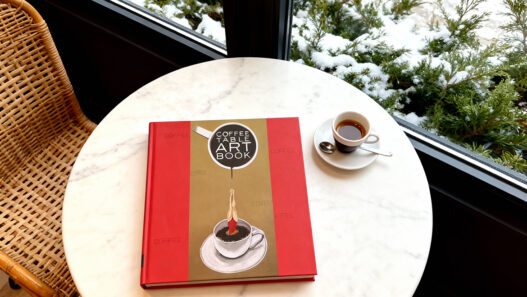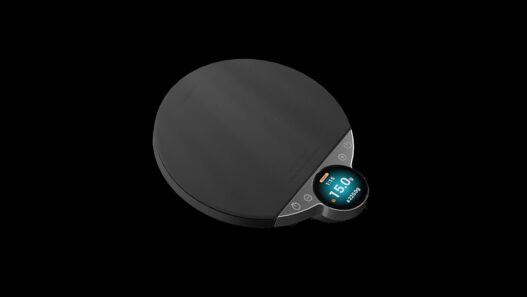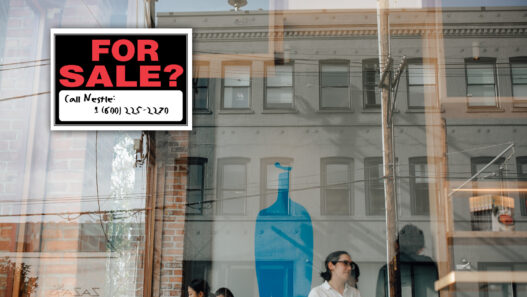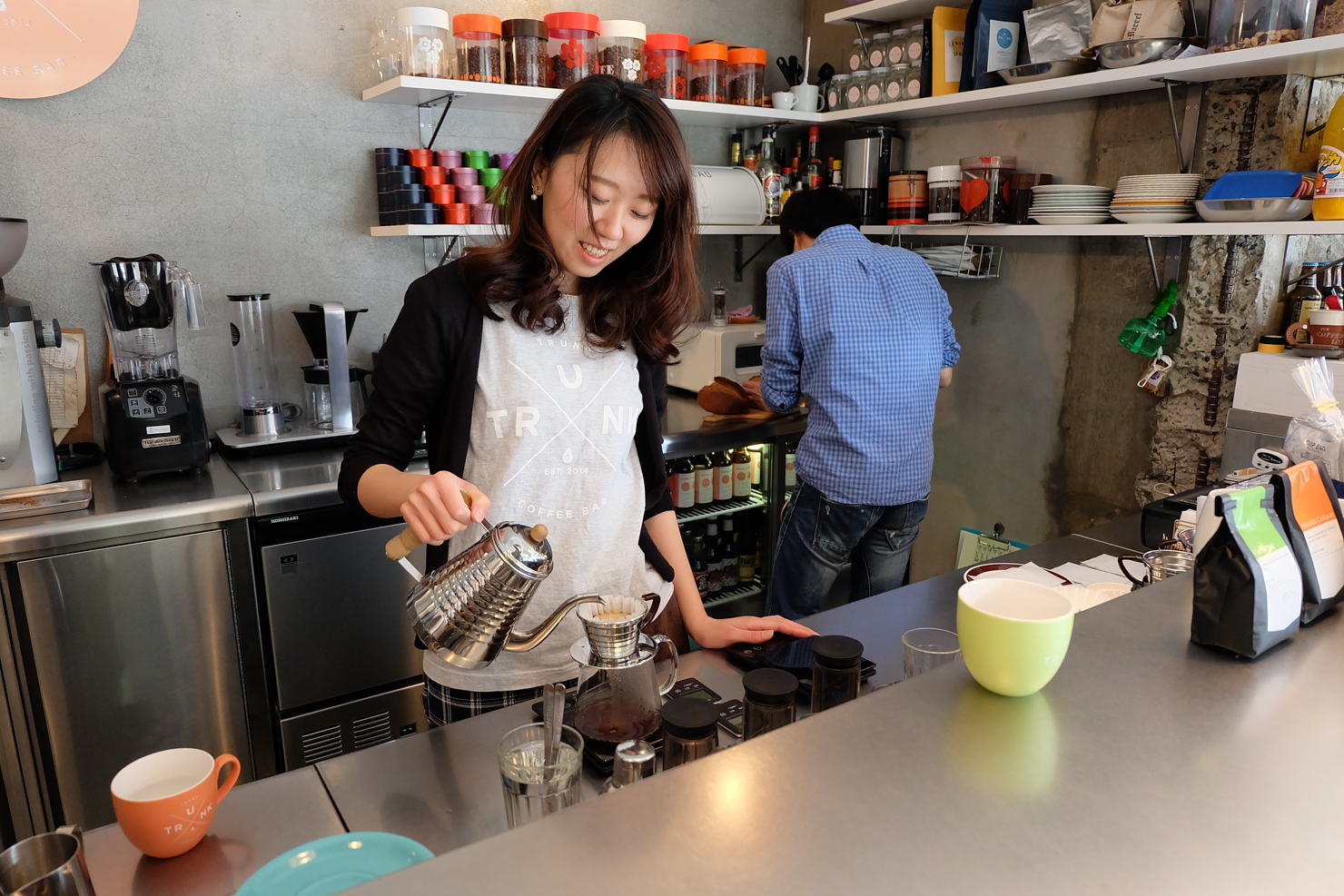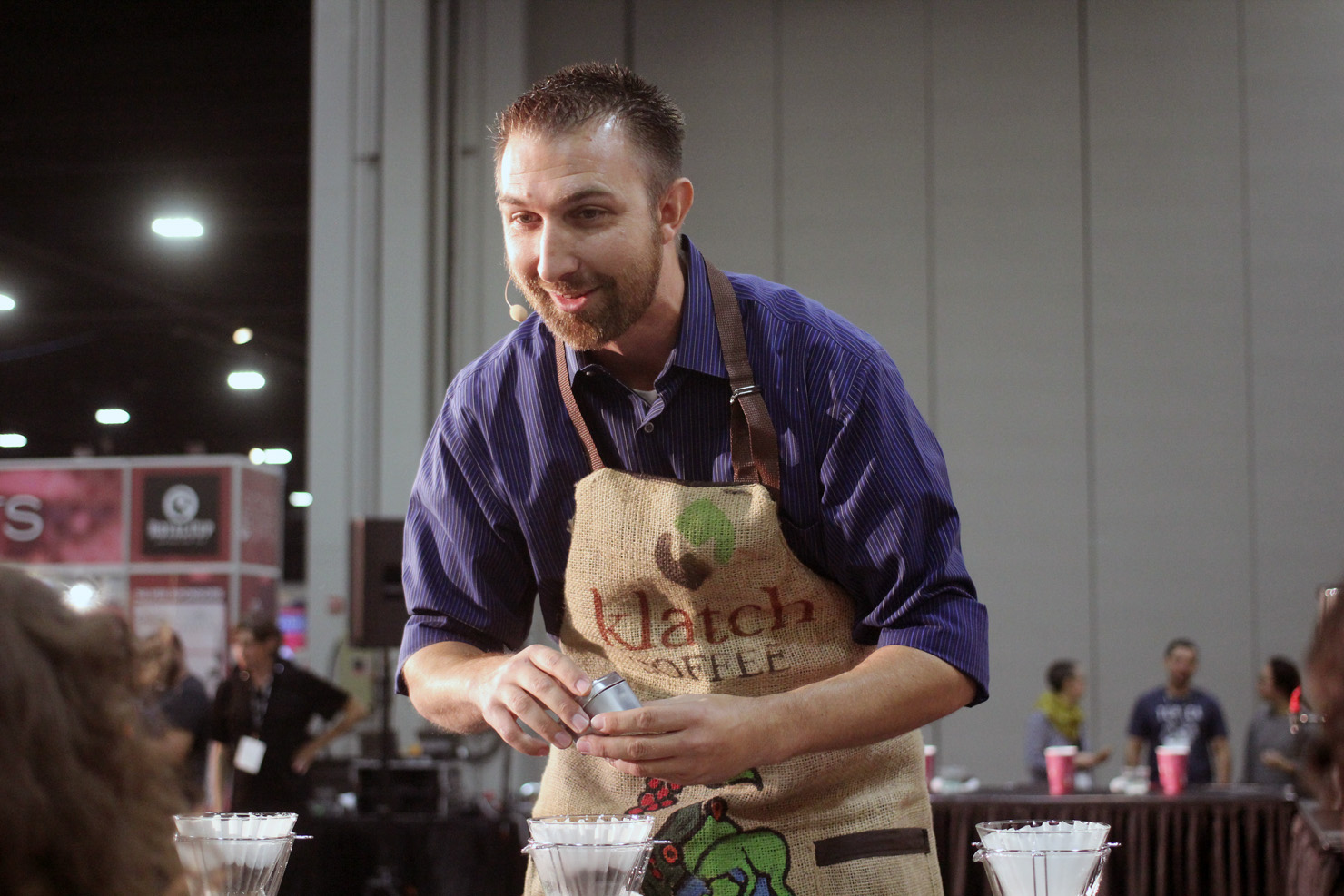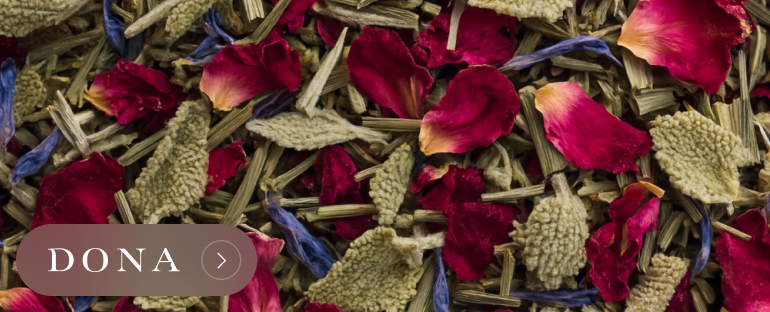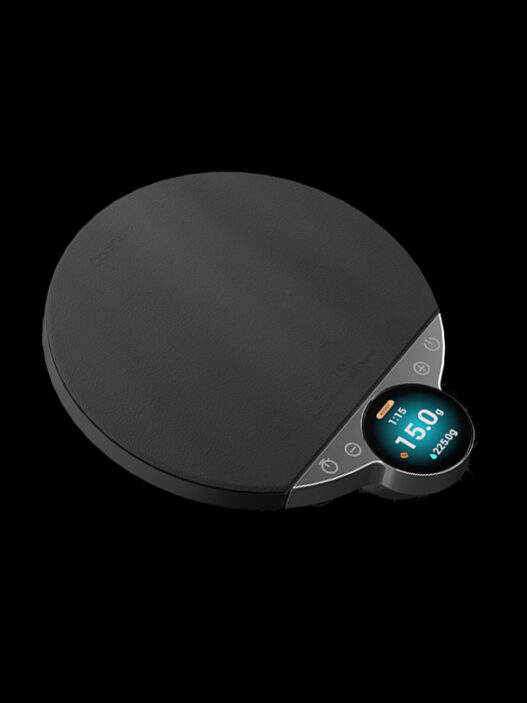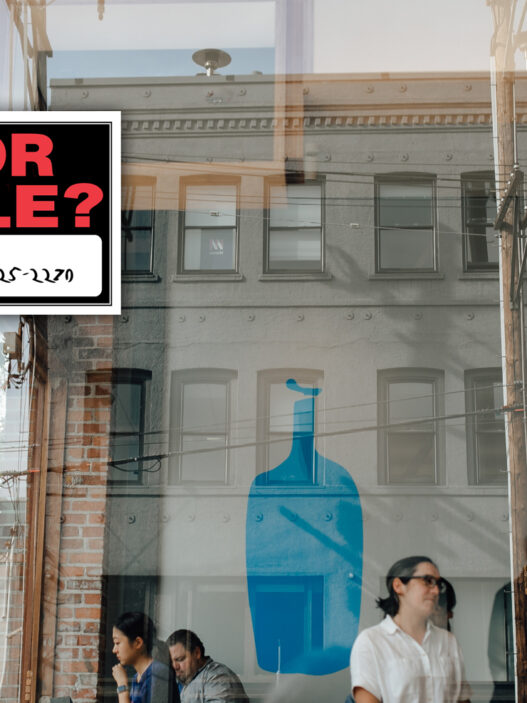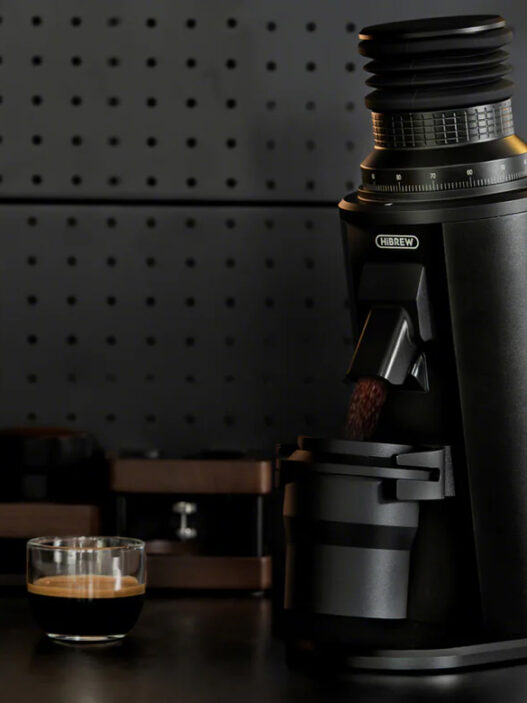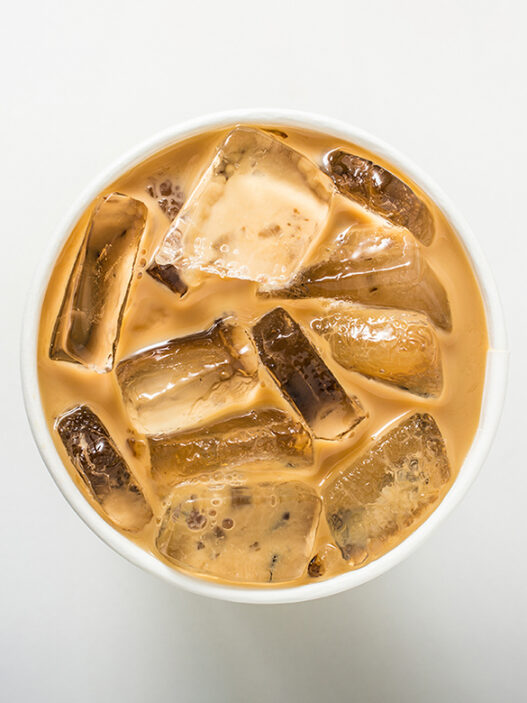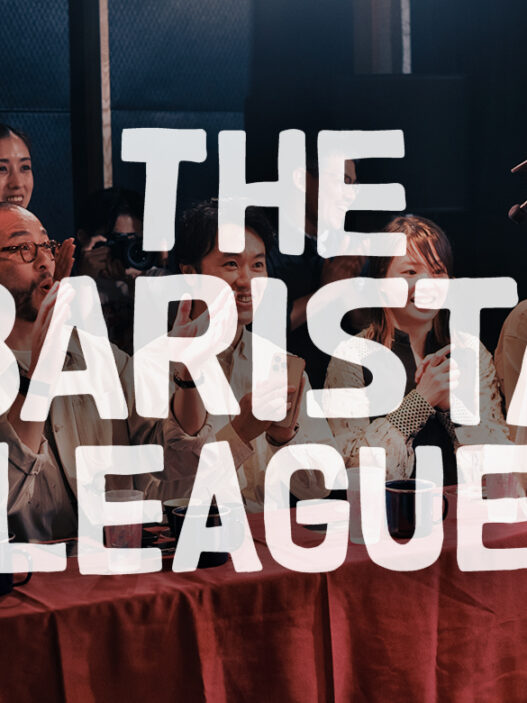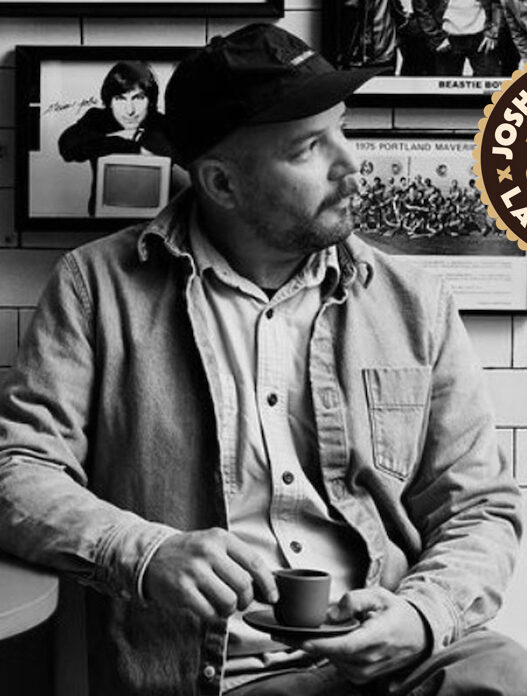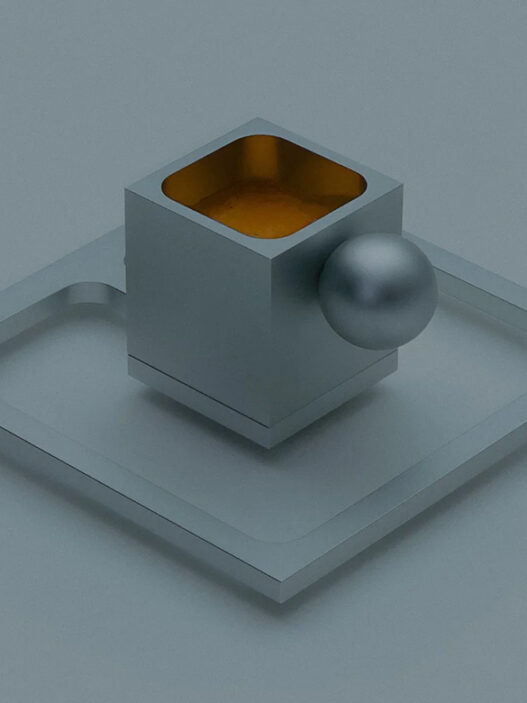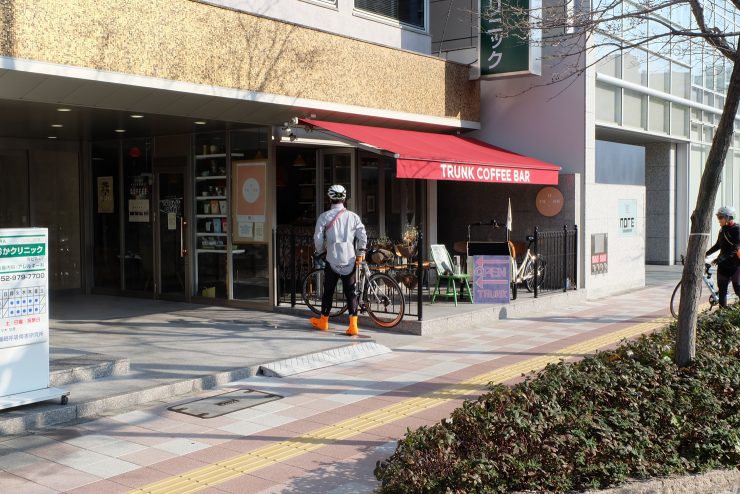
Nagoya is Japan’s fourth-largest city. It sits snugly in the center of Japan’s main island, Honshu, and is the stop between Tokyo and Osaka on the bullet train. Nagoya is a kissaten town—a place brimming with old coffeehouses in which dark and smoky coffee is served by serious, upright baristas in dark and smoky rooms. Though these traditional institutions are fascinating, the world’s coffee culture is changing. So when I came across Trunk Coffee while searching for a more progressive coffee option, I decided to take a look.
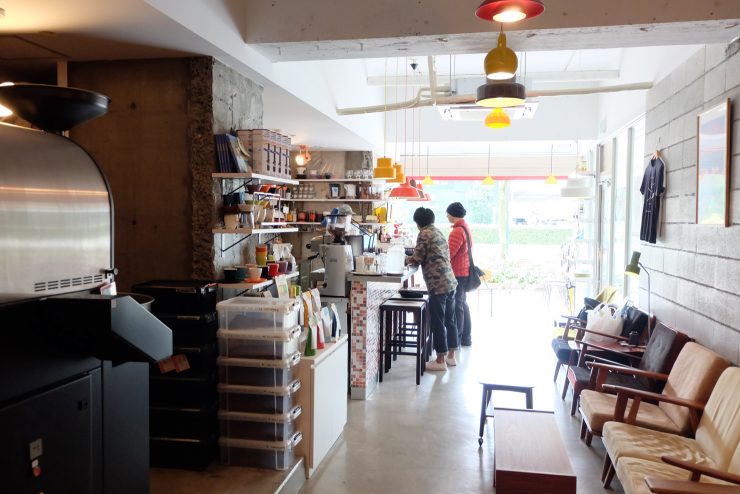
In stark contrast to the often dimly lit and dark-wooded coffeehouses of the area, Trunk is flooded with natural light and is brightly decorated. Mid-century chairs and desks imported from Scandinavia line the wall of the main corridor. In the back of the shop, cozy sofas invite small groups to sit and chat; outside there is patio seating overlooking one of Nagoya’s many wide and busy streets. Custom-made multicolor espresso cups are stacked on top of the La Marzocco Linea Classic espresso machine—also custom built—which sits next to a Mazzer Robur grinder. A five-kilogram Probat roaster and large containers of yet-to-be-roasted beans take up most of the back right wall.
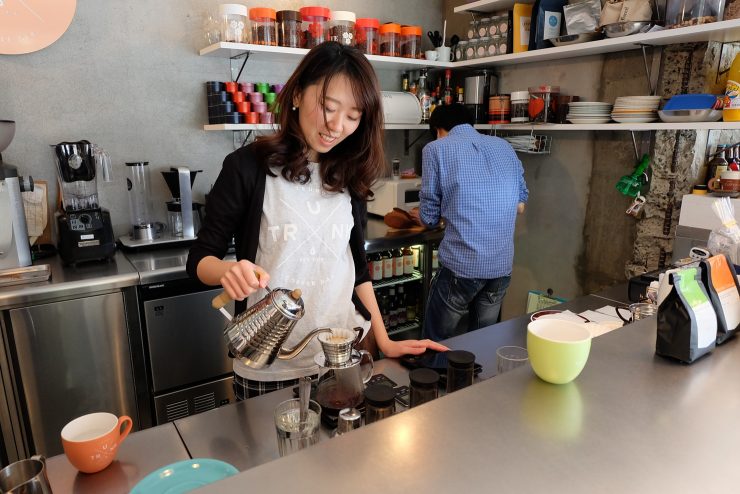
I order an espresso from the barista and hope for the best—after all, Nagoya is not known for its specialty coffee scene. The shot, a fully washed Ethiopia Hama, blows me out of the water. It’s very sweet. Hints of raspberry jam and honey are instantly apparent and the aftertaste is pleasantly limey. I have a Kalita Wave pour-over next, a Cup of Excellence Burundi Mahonda. It’s ripe with red citrus fruits and cashew undertones. Maybe it’s because I expected so little from this cafe, but I’m instantly won over. I quickly set up a meeting with their owner to learn more about the shop.
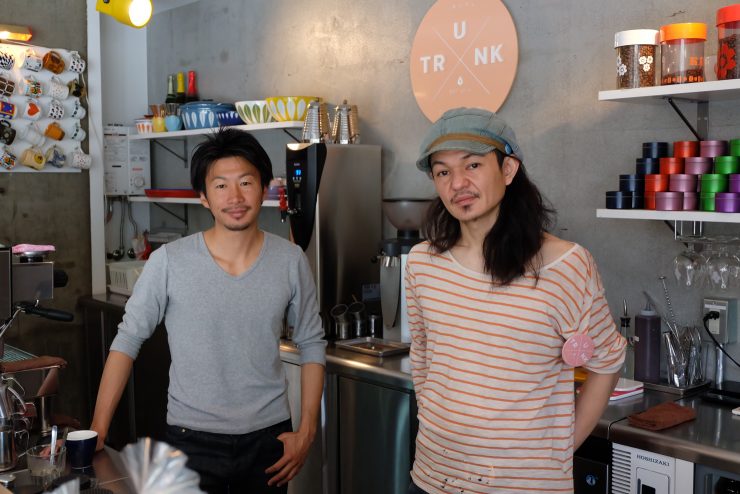
Trunk Coffee Bar was opened in mid-2014 by Yasuo Suzuki and his friend Kiyohito Tanaka. Suzuki decided some years back that he wanted to open a cafe someday, so he began studying coffee—his philosophy being as simple as: if you have a cafe, you should serve good coffee. His research led him to discover that Denmark had a high concentration of barista champions. So, Suzuki went to Denmark and began begging at doorsteps for a chance to study under well-known baristas, but was turned down at every turn. Moving on to less famous shops, he eventually found one willing to take him in. After studying for a year and a half he moved back to Japan and began working at Fuglen, a Scandinavian-style cafe in Tokyo. He continued there for two years before deciding to return to Denmark to study roasting. Now, with the connections he had made at Fuglen, he had a chance to talk to and learn from some of Denmark and Norway’s best.
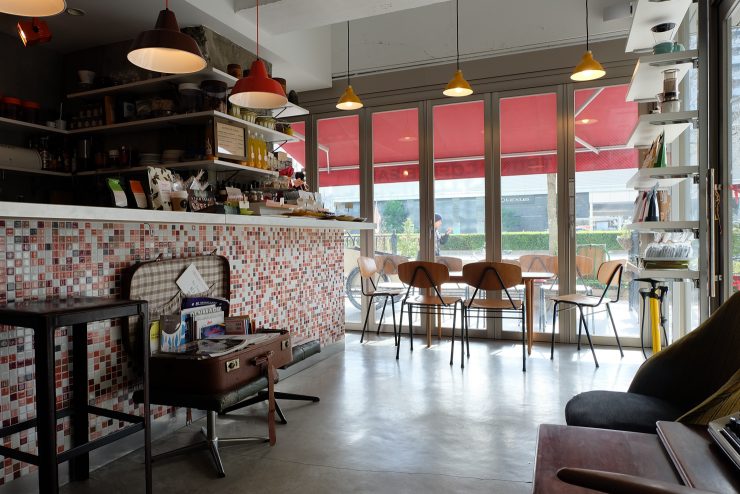
After nearly five years of research and practice, he was ready to open Trunk. Suzuki chose Nagoya because he felt that Tokyo was too crowded with specialty coffee choices, while Nagoya had practically none. He wanted to be a pioneer of sorts, bringing modern coffee culture to a place it hadn’t reached yet. Also, and perhaps more important, Nagoya is Suzuki’s hometown. It has the reputation of being boring in comparison with Japan’s other major cities, and he wanted to help change that.
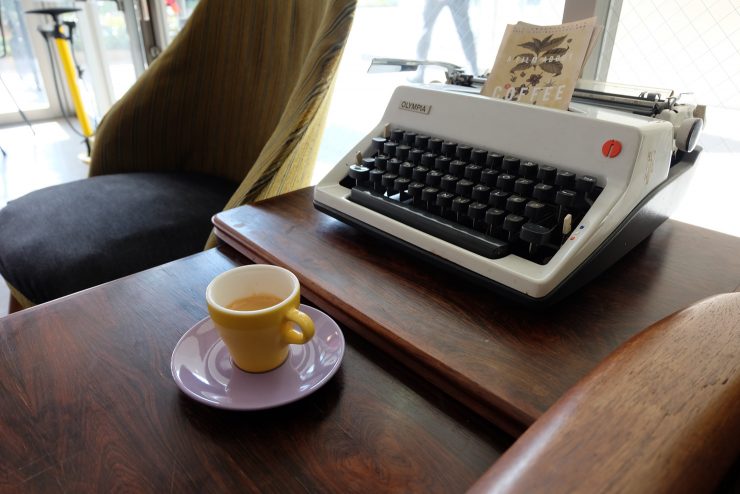
It hasn’t been easy bringing the bright and juicy flavors of Scandinavian coffee to a city that loves its dark roast, but Trunk is making its mark. Suzuki does his best to spread the word and to educate people about specialty coffee. He has appeared in magazines, on radio shows, and even on TV programs to talk about his craft. In the store, he offers a number of workshops every month to give people a chance to get hands-on with the tools of the trade.
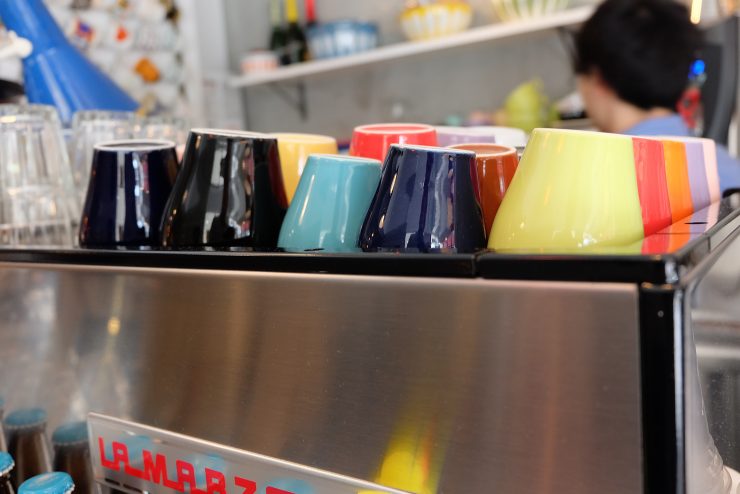
Through the efforts of Suzuki and his crew, specialty coffee may take off here in Nagoya as it has in Tokyo. In fact, there is already one sign of it happening: standing at the forefront of this movement, carefully crafting drinks for curious customers, and gently introducing the lighter side of coffee is Trunk.
Eric Tessier is a freelance journalist based in Tokyo. Read more Eric Tessier on Sprudge.




